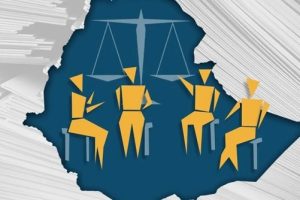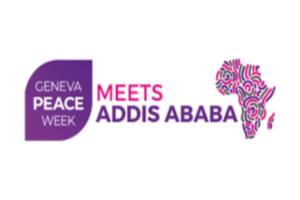BY MENGESHA AMARE
For various reasons, the upcoming general election will be like no others. The selection of apolitical and longtime human rights activist as the chairperson of the National Election Board of Ethiopia and the revision of draconian laws as well as the measures taken to make then Board impartial and independent have upped everyone’s optimism and sentiment not just only for better poll but for democratic transformation.
And, emboldened by the reforms and commitment of the Board to conduct a credible election as much as possible, Ethiopians from corner to corner are eagerly waiting for the date for dropping cards to speak about whom they prefer.
Yes, ballot boxes speak. Systems serenely change. These all need a clear avenue. That is a dependable election. Every time and everywhere when elections are thought, what comes in everyone’s mind is assuming power through ballot box. Unfortunately, in the context of developing countries, accusing one another has long become the norm particularly among contesting parties.
It is natural to find fault out of competitors. It would be well acceptable if accompanied with convincing justifications and credible information. However, purposely working towards blackmailing contenders is not a normal approach.
Making all the past ugly history, especially in relation to elections, Ethiopians are now committed enough to entirely reshuffle the election system they have been through for over 27 years as all have started thinking beyond election-having their great nation-Ethiopia-in mind. Since elections are the essence of democracy, they allow people to select their political leaders and then to hold them accountable. This culture is believed to be well nurtured more than ever before.
This hard fact has been well attested by a number of scholars and members of different political parties.
“The big picture has to come to the front line-building a democratic nation. Elections which are accompanied with intimidations, fraud, treachery, are not elections instead they can be regarded as gambling spots,” said Kotebe Metropolitan University Law and History Instructor Almaw Kiflie (Ph.D).
“Those who think about the turn, and declare it to do activities in that sentiment are not in a position to serve the public and serve their country instead they are running towards office which leads the country and its people all nowhere,” he said.
As learnt from Dr. Almaw, the major aim of the 6th election is making Ethiopia and Ethiopians victorious over everything being winners via developing multinational unity and fraternity.
“All citizens of the country are expected to exert utmost effort to make the upcoming election free and fair, which can potentially push Ethiopia to the summit of prosperity it deserves. The ruling as well as contesting parties has to be ready than ever to fix a democratic culture and not to conduct a fictitious election to which the country had accustomed before,” underlined Dr. Almaw.
In is undeniable fact that unless they are forced to be under the close supervision of others, people need to be able to freely cast their ballots. If we are looking for a real, credible and true election that vividly reflects what Ethiopia demands, voters should be able to reach polling stations and cast their votes regardless of who they are or where they live.
“Elections have been trifling so far that could never fit the greatness of Ethiopians as the leaders were little ones themselves. They merely talked about democratic elections for the sake of securing foreign support, but the reality on the ground had never had a wee drop of truth and credibility,” said Assistant Prof. Abebaw Ayalew from Addis Ababa University.
“The country is not expected to conduct nominal elections as the previous system did, instead it should give priority to the big picture, Ethiopia and most definitely the election has to be made tailored to Ethiopia and Ethiopians,” he added.
It is crystal clear that when regimes commit electoral fraud, the long aspired free, fair, credible elections might be made an illusion.
For elections to fulfill their critical function, they must be open and just. If some citizens are prevented from voting or the results are not counted properly, an election can’t be called free fair and credible as just holding an election is not sufficient.
To be clear with what is free and what is fair with regard to an election, a free election is one in which all citizens are able to vote for the candidate of their choice, and a fair election is one in which all votes have equal power and are counted accurately.
Unquestionably, there are standards that governments need to meet before, during, and after an election to ensure that it is free and fair.
Of the many standards that need to be lit well, meeting the will of the people as every aged person has the ability to vote, and each vote has equal power and counts. That is why it is said from the outset ballot boxes speak!
It is inevitable that the government can place some restrictions on who can register to vote based on age, residency, or citizenship status. However, for an election to be free and fair, the government should not prevent eligible voters from registering or make it more difficult for some groups of people to register than others.
If electorates are unable to vote in person, for instance, because of a disability, health condition, or a lack of transportation, alternative method of voting systems must be devised via employing a variety of means as the voices of these segments of the society matter the most.
According to Dr. Almaw, since we have passed through the sick politics, injured politics through which clashes at the time of elections has been taken as a culture, people feel afraid to vote for their candidate of choice or even prevent people from voting at all as a result of violence, or the threat of violence. This fashion has to be dramatically altered and dried for good.
“We have to think beyond politics, beyond elections, beyond tribe or clan as Ethiopia is greater than what we have at hand. It is our soul and flesh, too. Hence, elections must be made free, fair and electorates should be freely cast votes without any intimidation and duress. This time we can make an election the election,” Dr. Almaw uttered.
He said if all parties be it the ruling or other contesting ones are committed enough to have a democratic nation circumventing hatred politics, tribalism and fanaticism, making a credible and well accepted election will be quite easy and on our own palm.
We all have to bring about a dynamic political thinking despite the presence of a number of people think about politics in structurally different ways.
Mourning over the past and citing irrelevant narratives never help come up with difference instead of prolonging the duration of incurring financial, moral and labor cost. We invoke past friendly meetings of the mind in order to chastise those who just can’t seem to get along today. Its reverence for the power of the socio-economic sphere to find a happy medium is not only rooted in a wholly incorrect interpretation of our political history, but is also incredibly privileged and unjust.
Mainly, the integrity of our electoral process is strongly believed to be a necessary ingredient for a healthy democracy through which a fair, free, credible, democratic and peaceful election can be secured.
The Ethiopian Herald February 18/2021



